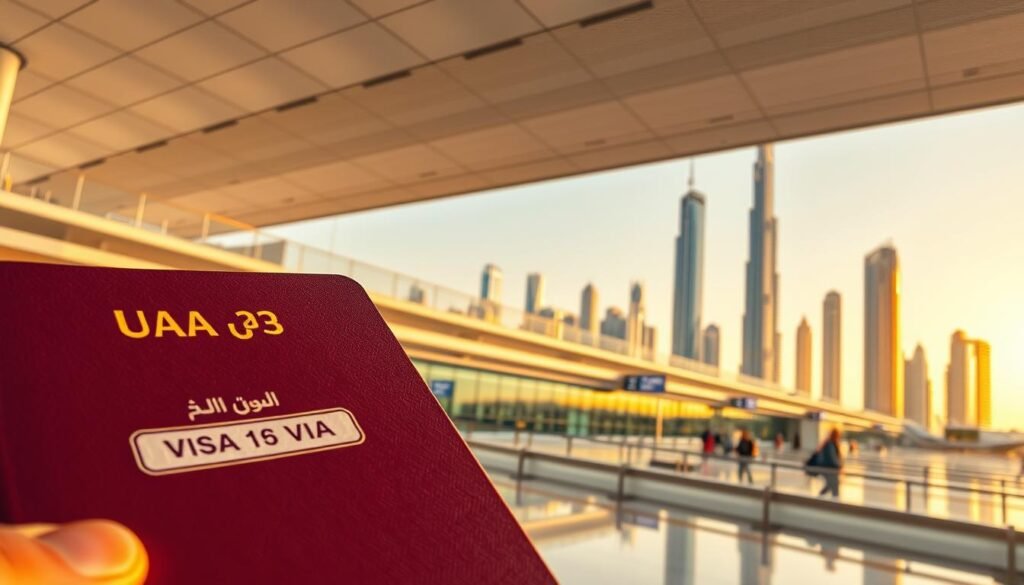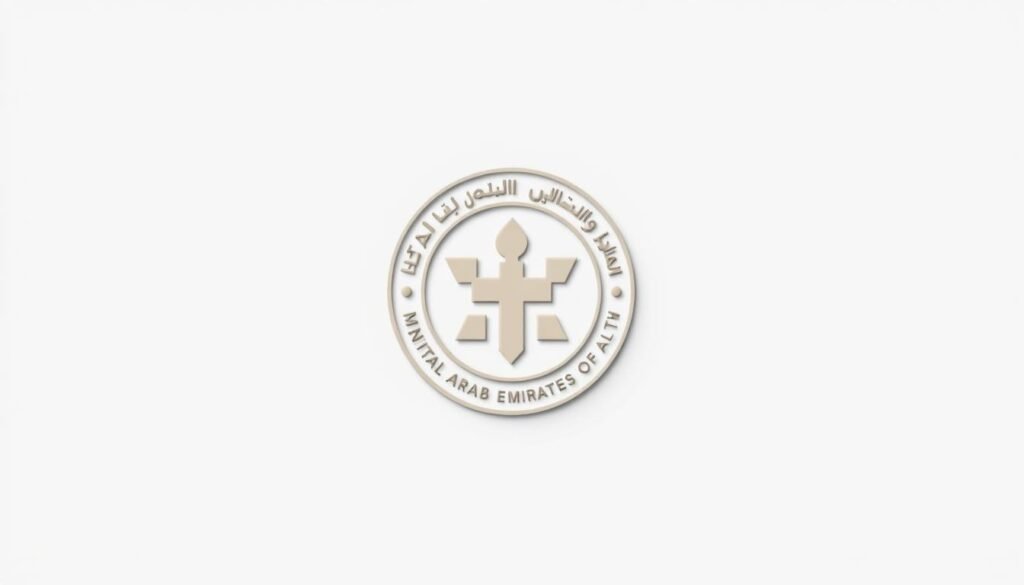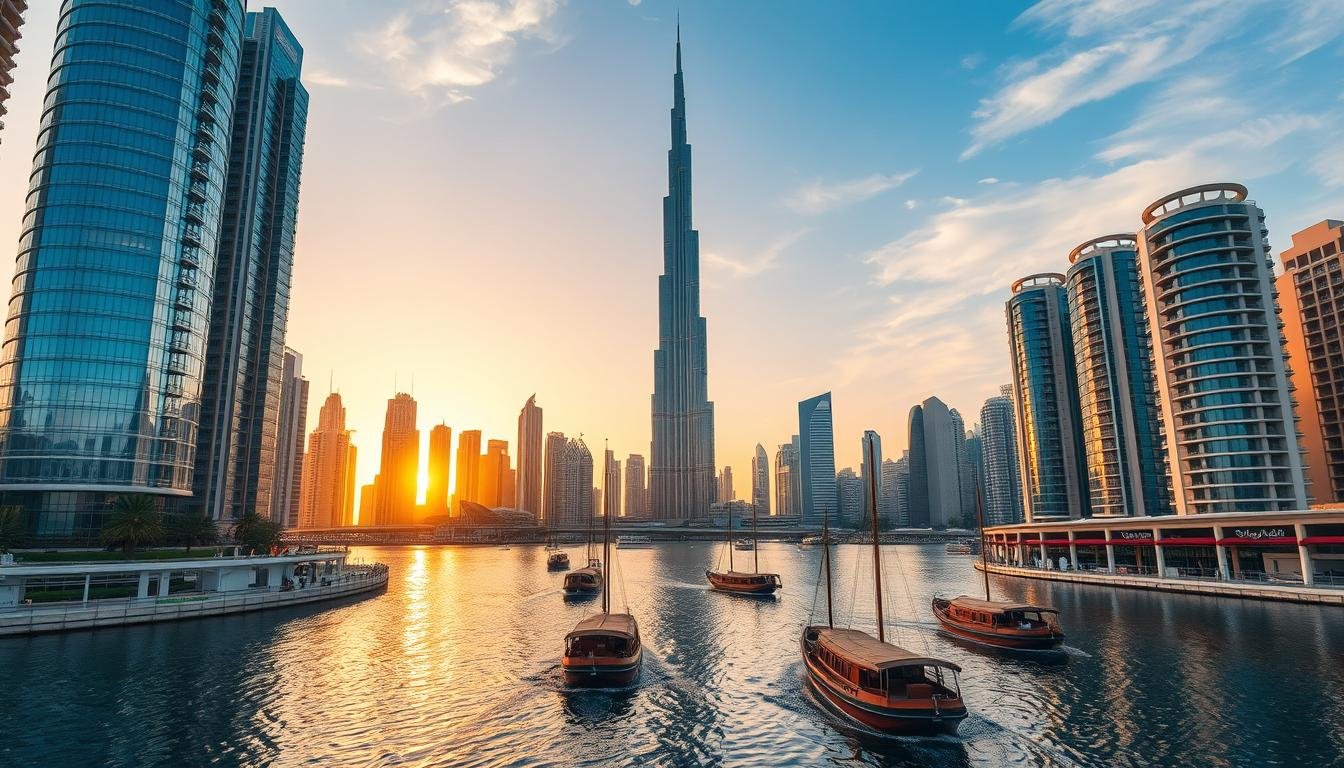Plan Your Trip to the United Arab Emirates: Tips for Visiting the UAE
Go to united arab emirates: Are you ready for an unforgettable travel experience? The United Arab Emirates is a fascinating destination that seamlessly blends traditional Arabian culture with ultramodern attractions.
To ensure a smooth and enjoyable trip, it’s essential to understand the various entry requirements, cultural norms, and practical considerations. Whether you’re exploring Dubai’s iconic skyscrapers or Abu Dhabi’s cultural sites, proper preparation is key.
This comprehensive guide will provide you with valuable advice on how to make the most of your visit. By understanding the specific travel regulations and customs, you’ll be well-prepared for an incredible journey.
Essential Requirements to Go to United Arab Emirates
Understanding the essential requirements for visiting the UAE is key to a successful trip. Before you pack your bags, it’s crucial to be aware of the necessary documents and preparations needed for a smooth entry into the country.
Passport and Visa Information
To enter the UAE, your passport must be valid for at least six months beyond your intended stay. Depending on your nationality, you may need a visa. Check the UAE government’s visa requirements for your country to determine if you need a visa and what type is required.
Travel Insurance and Health Documentation
Having adequate travel insurance is highly recommended. It should cover medical expenses, hospitalization, and repatriation. Ensure your policy includes coverage for the UAE. Additionally, some nationalities may require health documentation, so it’s essential to check the specific requirements for your country.
Yellow Fever Certificate Requirements
If you’re arriving from or have transited through a country with a risk of yellow fever transmission, you’ll need a valid yellow fever vaccination certificate. The certificate becomes valid 10 days after vaccination and is valid for life. It’s crucial to keep this certificate with your passport and other travel documents, as you may be asked to present it at immigration.
Travelers should be aware of the entry requirements and ensure they comply with all health regulations. For the most up-to-date information, consult TravelHealthPro’s UAE guide.
Understanding UAE Entry Regulations
Navigating the UAE’s entry regulations can seem daunting, but understanding the rules is crucial for a smooth trip. The UAE has implemented various regulations to ensure a secure and efficient entry process for visitors.
Visa Types and Duration of Stay
The UAE offers different types of visas, including tourist visas, transit visas, and visit visas, each with its own duration of stay. For instance, a tourist visa can be valid for 30 days, while a visit visa can be valid for 90 days. It’s essential to apply for the correct type of visa based on your travel plans to avoid any complications upon entry UAE.
| Visa Type | Duration of Stay |
|---|---|
| Tourist Visa | 30 days |
| Visit Visa | 90 days |
| Transit Visa | 48-96 hours |
Previous Travel to Israel Considerations
If you have traveled to Israel, there are specific considerations to keep in mind. While having an Israeli stamp or visa in your passport must not be a problem for tourists due to the normalization of relations between Israel and the UAE, there is still a risk of additional scrutiny if you plan to work. Dual nationals, especially British-Israeli citizens, are advised to contact the UAE Embassy in the UK for guidance to mitigate any potential risk.

Some travelers prefer to use a second passport when visiting the UAE, especially for work purposes, to avoid any potential issues.
Medication and Health Preparations
The UAE has strict regulations regarding medication, making it crucial to prepare in advance. Travelers must comply with the UAE’s rules to avoid any issues during their trip.
Bringing Prescription Medications to the UAE
If you’re taking prescription medications, it’s essential to obtain approval in advance from the UAE Ministry of Health. To do this, you’ll need to apply online through the Ministry’s portal at least 5 working days before your travel date. The application process requires uploading your prescription, a medical report, and details about your visit duration and medication requirements.
- Apply for approval through the UAE Ministry of Health’s online portal.
- Upload required documents, including your prescription and medical report.
- Receive an official document once approved, which you must carry with your medication.
Getting UAE Ministry of Health Approval
To bring controlled medications to the UAE, you must get approval from the UAE Ministry of Health. The application process typically takes 5 working days, so plan accordingly. Once approved, you’ll receive an official document that must be printed and carried with your medication when entering the UAE. For guidance or to inquire about your application status, contact the UAE Ministry of Health directly at info@moh.gov.ae or +97180011111.

Cultural Etiquette and Local Customs
Understanding the cultural nuances of the UAE is crucial for a respectful and enjoyable visit. The UAE is a country with deep-rooted traditions and customs, and being mindful of these can significantly enhance a traveller’s experience.
Dress Code Guidelines
Visitors are expected to dress modestly, covering their shoulders and knees, especially when visiting mosques or government buildings. Modest clothing is not only a sign of respect but also a legal requirement in the UAE.
Ramadan Considerations
During Ramadan, it’s essential to be respectful of the fasting population. Avoid eating, drinking, or smoking in public during daylight hours, as this can be considered impolite and may result in legal issues.
Public Behavior and Social Norms
Travellers should be aware that public displays of affection, such as kissing or hugging, should be minimal to avoid any potential legal issues. Additionally, swearing or making rude gestures can lead to fines or imprisonment. It’s also crucial to exercise caution when taking photographs, especially of local people or sensitive areas like government buildings.
By being informed about local customs and adhering to these guidelines, travellers can minimize their risk of encountering problems and maximize their enjoyment of the UAE’s diverse culture and hospitality.
Legal Considerations for Visitors
The UAE has a unique set of laws that visitors should familiarize themselves with to avoid any issues. Understanding these legal considerations is crucial for a smooth and enjoyable trip.
Alcohol Consumption Rules
Alcohol consumption is allowed in licensed venues, but public intoxication is strictly prohibited. Visitors should be aware that drinking in public places or being drunk in public could face legal consequences.
Prohibited Items and Substances
Certain items and substances are strictly prohibited in the UAE, including narcotics and obscene materials. Customs regulations are strict, and attempting to bring prohibited items into the country poses a significant risk of detention and prosecution.
Social Media and Photography Restrictions
Visitors should be cautious with their social media activity and photography. Posting negative comments about the UAE or its rulers could face serious legal repercussions, including fines and imprisonment. Additionally, photography restrictions are in place at government buildings and military installations.
| Action | Potential Consequence |
|---|---|
| Posting negative comments on social media | Fines and imprisonment |
| Photography at restricted sites | Arrest and detention |
| Violating customs regulations | Detention and prosecution, potentially leading to a travel ban |
Being aware of these legal considerations and respecting local customs will help visitors avoid legal issues during their stay in the UAE.
Best Times to Visit the UAE
For travelers to the UAE, knowing when to go can make a significant difference in their experience, given the country’s distinct weather patterns and festivals. The ideal time to visit depends on your preferences and what you want to do during your trip.
Weather Patterns Throughout the Year
The UAE experiences a desert climate, characterized by hot temperatures and low humidity throughout most of the year. The months from November to March are considered the best for travel due to the milder temperatures, making outdoor activities more enjoyable.
Major Festivals and Events
The UAE hosts various events and festivals that attract visitors from around the world. Some notable events include:
- Ramadan, the Islamic holy month, which significantly impacts daily life and business hours.
- The Dubai Shopping Festival, usually in December-January, offering exceptional retail discounts and entertainment.
- Abu Dhabi’s Formula 1 Grand Prix in November/December, featuring concerts and events beyond the race.
- Art Dubai and the Abu Dhabi Art Fair, showcasing international and regional art.
- National Day celebrations on December 2nd, with fireworks, cultural performances, and festive decorations.
Planning your travel to the UAE during these events can enhance your experience, providing a mix of culture, entertainment, and shopping. Considering these factors and the months they take place in can help you make the most of your visit to the United Arab Emirates.
Top Destinations in the Emirates
With its blend of modernity and tradition, the UAE offers travelers a unique journey across its seven emirates. Each emirate has its own distinct charm and attractions, making the UAE a diverse and exciting destination.
Dubai Highlights
Dubai is known for its futuristic architecture, luxurious shopping malls, and vibrant nightlife. Visitors can marvel at the Burj Khalifa, explore the Dubai Museum, or relax on the pristine beaches.
Abu Dhabi Attractions
Abu Dhabi, the capital of the UAE, is a hub of cultural and historical significance. The Sheikh Zayed Grand Mosque is a must-visit, along with the Louvre Abu Dhabi and the Yas Marina Circuit.
Exploring Sharjah and the Northern Emirates
The Northern Emirates offer a mix of cultural heritage and natural beauty. Sharjah, known as the Cultural Capital of the Arab World, boasts numerous museums like the Sharjah Art Museum and the Sharjah Museum of Islamic Civilization. Fujairah provides snorkeling and diving opportunities, while Ras Al Khaimah offers mountain adventures and luxury beach resorts. Ajman and Umm Al Quwain provide a glimpse into traditional Emirati life with their historic forts, fishing villages, and natural reserves.
- Sharjah offers numerous museums, including the Sharjah Art Museum and the Sharjah Museum of Islamic Civilization.
- Fujairah features snorkeling and diving opportunities at Snoopy Island.
- Ras Al Khaimah combines mountain adventures with luxury beach resorts.
- Ajman offers a relaxed atmosphere with its corniche and the Al Zorah Nature Reserve.
- Umm Al Quwain preserves traditional Emirati life with its fishing villages and the abandoned Al Sinniyah Island ghost town.
Transportation and Getting Around
Navigating the UAE is relatively straightforward, thanks to its modern transportation infrastructure. The country offers various options for travelers to move around, ensuring a convenient and enjoyable experience.

Airport Transfers and Public Transport
Upon arrival, visitors can choose from several airport transfer options, including taxis, limousine services, and public transport. The UAE’s airports are well-connected to major cities through metro lines and bus services, making it easy to reach your destination.
- Taxis and ride-hailing services are readily available at airports.
- Metro services connect major cities and are an affordable option.
Renting a Car vs. Using Taxis
When it comes to exploring the UAE, visitors have the option to rent a car or use taxis. Renting a car provides maximum flexibility, especially for those planning to visit multiple emirates. However, it requires an international driving permit alongside your home country’s license for most nationalities.
- Renting a car offers flexibility and convenience for multi-emirate travel.
- Taxis are plentiful and relatively affordable, with ride-hailing apps offering upfront pricing.
To ensure a smooth travel experience, it’s essential to comply with local authorities’ regulations, such as adhering to traffic laws and having the necessary insurance coverage. Understanding the local requirements can help avoid any inconvenience during your travel.
Conclusion: Making the Most of Your UAE Experience
To make the most of your trip to the UAE, consider several key factors. When you go to United Arab Emirates, balancing your itinerary between iconic modern attractions and cultural experiences is crucial for gaining a deeper appreciation of this rapidly evolving country.
To minimize risk, consider purchasing a comprehensive travel insurance policy that specifically covers the UAE and includes adequate medical coverage. Healthcare costs can be extremely high for visitors, making insurance a vital aspect of travel planning.
Some additional advice includes respecting local customs and laws, staying hydrated, and protecting yourself from the sun. Downloading useful local apps before arrival can also enhance your experience. Keep digital copies of important documents to facilitate assistance in case of emergency.
Visiting during shoulder seasons can help balance comfortable weather with fewer crowds and more reasonable accommodation rates. Engage with Emirati culture beyond shopping malls by participating in cultural experiences. Budget carefully, as while some aspects of UAE travel can be affordable, luxury experiences can quickly increase expenses.
By following these tips and maintaining flexibility in your plans, you can have a rewarding and memorable experience in the UAE.







